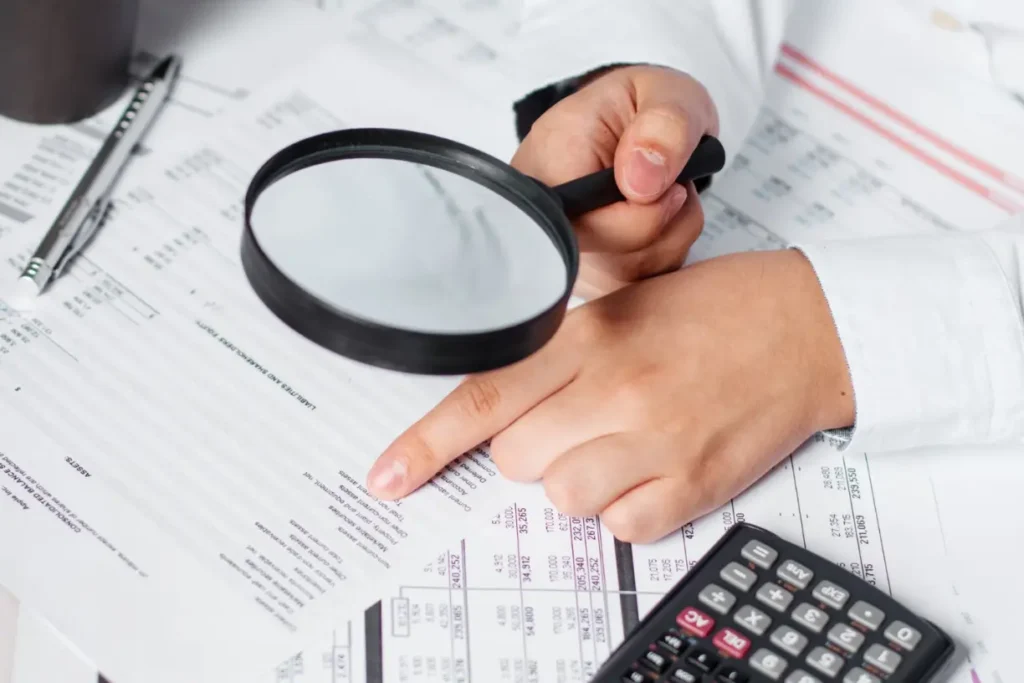Staying audit-ready is not something to think about once a year—it’s an ongoing process. Businesses that maintain accurate, consistent records face fewer compliance issues and spend less time scrambling during tax season. The right approach to bookkeeping keeps your financials clean, compliant, and stress-free.
If you want professional help maintaining year-round financial accuracy, Koffex Accounting offers expert Accounting & Bookkeeping services to simplify every part of your audit preparation.
→ Get Expert Help Now
1. Keep Business and Personal Finances Separate
Mixing business and personal transactions makes audits unnecessarily complicated. Always use a dedicated business account and card for your operations. This separation helps track income, verify expenses, and provides a transparent audit trail that tax authorities expect.
When businesses maintain clear financial boundaries, they also gain accurate insights into profitability and spending patterns.
2. Record Transactions Weekly
Consistency is the secret to clean books. Set aside 30 to 60 minutes each week to update your financial records. This habit minimizes forgotten receipts, missing entries, and the last-minute rush during tax filing.
If you’re managing a small business, consider using an organized [bookkeeping system for small business] to automate this process and reduce manual errors.
→ Schedule a Free Consultation with Koffex Accounting
3. Organize Receipts and Invoices
Unorganized receipts can quickly derail an audit. Use tools like QuickBooks, Wave, or Google Drive to store and categorize digital copies of every transaction. Organizing documents by month or expense category ensures easy access when verification is required.
Key Steps:
- Scan or photograph receipts immediately.
- Use consistent file naming formats (e.g., “June2025_OfficeSupplies”).
- Backup all files to a secure cloud drive.
This discipline saves hours when reconciling accounts or providing documentation during reviews.
4. Reconcile Accounts Monthly
Monthly bank and credit card reconciliations reveal discrepancies early. Matching your bank statements with bookkeeping records ensures that every deposit, withdrawal, and payment is accounted for.
Frequent reconciliation also prevents fraud and errors from going unnoticed. It keeps your financial position transparent—an essential element of audit readiness.
For smoother processes, consider pairing reconciliation routines with strong bookkeeping and cash flow management practices to track income and expenses effectively.
5. Conduct Internal Reviews
Quarterly or monthly reviews are proactive ways to stay audit-ready. Check your general ledger, verify documentation, and ensure expense categories are applied consistently.
During Internal Reviews:
- Look for duplicate or missing entries.
- Validate compliance with tax rules.
- Confirm all payroll and contractor payments are accurately recorded.
These checks catch minor issues before they escalate into audit complications.
→ Let Koffex Accounting Handle Your Audit Preparation
6. Use Cloud-Based Bookkeeping Systems
Cloud platforms make it easy to access and share financial data securely. They store receipts, invoices, and reports in one place, allowing accountants and auditors to review transactions anytime without manual exchanges.
Cloud solutions also reduce the risk of data loss and simplify collaboration across departments or external partners.
When combined with automation tools, this setup strengthens your year-round audit readiness.
7. Train Staff on Documentation Standards
Even the best systems fail if your team doesn’t follow proper documentation practices. Train employees who handle payments, invoices, or approvals on how to maintain and store records correctly.
Consistency in record-keeping across your business ensures compliance and reduces confusion during audits. A short quarterly session on documentation standards can make a significant difference.
8. Leverage Technology for Audit Readiness
Modern bookkeeping isn’t just about data entry—it’s about insight. AI-powered tools can detect anomalies, flag unusual spending patterns, and send real-time alerts. These systems help businesses identify risks before an auditor does, ensuring smoother reviews and fewer adjustments later.
Businesses that integrate such tools often find it easier to maintain compliance and avoid last-minute financial stress.
Conclusion
Audit readiness is built through steady, disciplined bookkeeping. When financial records are consistent, organized, and regularly reviewed, audits become easier—and even beneficial for understanding business health.
Koffex Accounting helps businesses maintain accuracy, compliance, and peace of mind throughout the year with reliable Accounting & Bookkeeping services.
→ Stay Audit-Ready with Koffex Accounting
Accurate books today mean confident audits tomorrow.
FAQs
How do I stay audit-ready all year?
Keep records organized, reconcile accounts monthly, and review financial statements quarterly. Consistency and cloud storage make audits faster and easier.
What are key bookkeeping habits for audit preparation?
Regular transaction updates, separate business accounts, and detailed documentation are essential bookkeeping habits for audit readiness.
How often should I reconcile accounts to stay audit-ready?
Monthly reconciliation is ideal to identify errors early and maintain accurate cash flow visibility.
What software is best for maintaining audit-ready books?
Tools like QuickBooks Online, Xero, and Wave provide automation, categorization, and cloud access that simplify audit preparation.
How do I organize receipts for audits?
Use digital tools to store and categorize receipts by date or type. Always back up files and maintain access for at least seven years.
What bookkeeping best practices help avoid audit stress? (Reddit)
Weekly updates, consistent expense categorization, and real-time tracking keep audits smooth and predictable.
How do I keep my books organized throughout the year? (Reddit)
Use automation software, maintain dedicated folders for each month, and schedule short weekly bookkeeping sessions.







